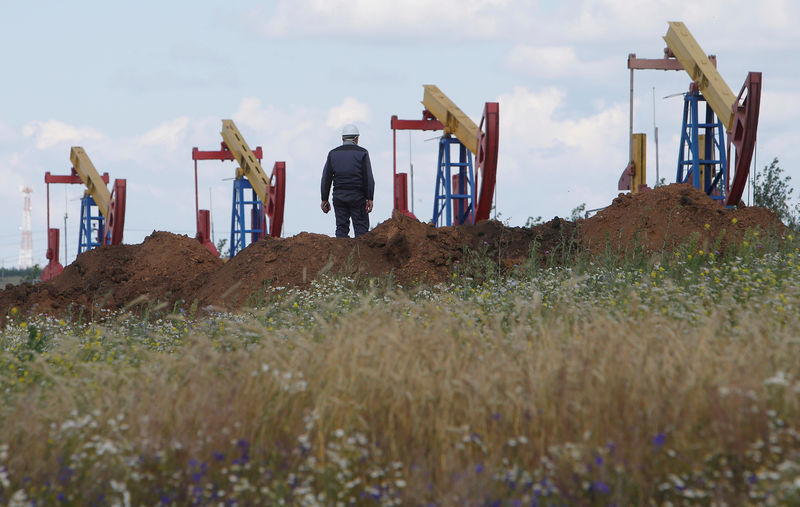By Catherine Ngai
NEW YORK (Reuters) - Oil rose more than 2 percent on Friday as a major U.S. crude pipeline was shut and traders anticipated an OPEC deal to extend curbs on production, but prices remained on track for a weekly loss after five sessions of declines.
Prices were still headed for their first weekly loss in six, pressured by rising U.S. output data and doubts that Russia would support an extension of the OPEC output cut deal. On Thursday, however, Saudi Arabia's energy minister signalled a willingness to extend output cuts when OPEC meets on Nov. 30, which supported prices.
"Obviously, the comments gave us guarantee that the extension is going to happen and was a driving story overnight," said Phil Flynn, an analyst at Price Futures Group in Chicago.
"Globally, we're coming against the backdrop of tightness in distillate inventories and strong global refinery demand. Those catalysts will continue to drive us higher."
Brent crude oil (LCOc1) was up $1.49 at $62.85 a barrel by 1:48 p.m. EST (1848 GMT) while U.S. West Texas Intermediate crude (WTI) (CLc1) rose $1.37 to $56.51 a barrel.
TransCanada Corp's (TO:TRP) 590,000 barrel per day (bpd) Keystone pipeline remained shut after a leak in South Dakota on Thursday. Traders said the shut-in would add to bullish sentiment due to fewer barrels going into Cushing, Oklahoma, the delivery point of the WTI contract.
Prices remained on track to fall nearly 2 percent this week, as fears of oversupply in the United States weighed after government data showed output
The International Energy Agency said on Thursday that the United States would account for 80 percent of the global increase in oil production over the next decade.
"Market participants are closely watching the rising oil-production profile in the U.S., which will remain the predominant bearish factor," said Abhishek Kumar, senior energy analyst at Interfax Energy’s Global Gas Analytics in London.
U.S. energy companies kept the oil rig count unchanged this week, General Electric (NYSE:GE) Co's Baker Hughes energy services firm said on Friday. Some analysts expect a gradual decline in the fourth quarter.
Signs of rising U.S. output have dampened the impact of output cuts by the Organization of the Petroleum Exporting Countries (OPEC), Russia and several other producers.

Earlier this week, Russia's Rosneft said an exit from the supply curb deal was a serious challenge, though added that it was committed to a deal.